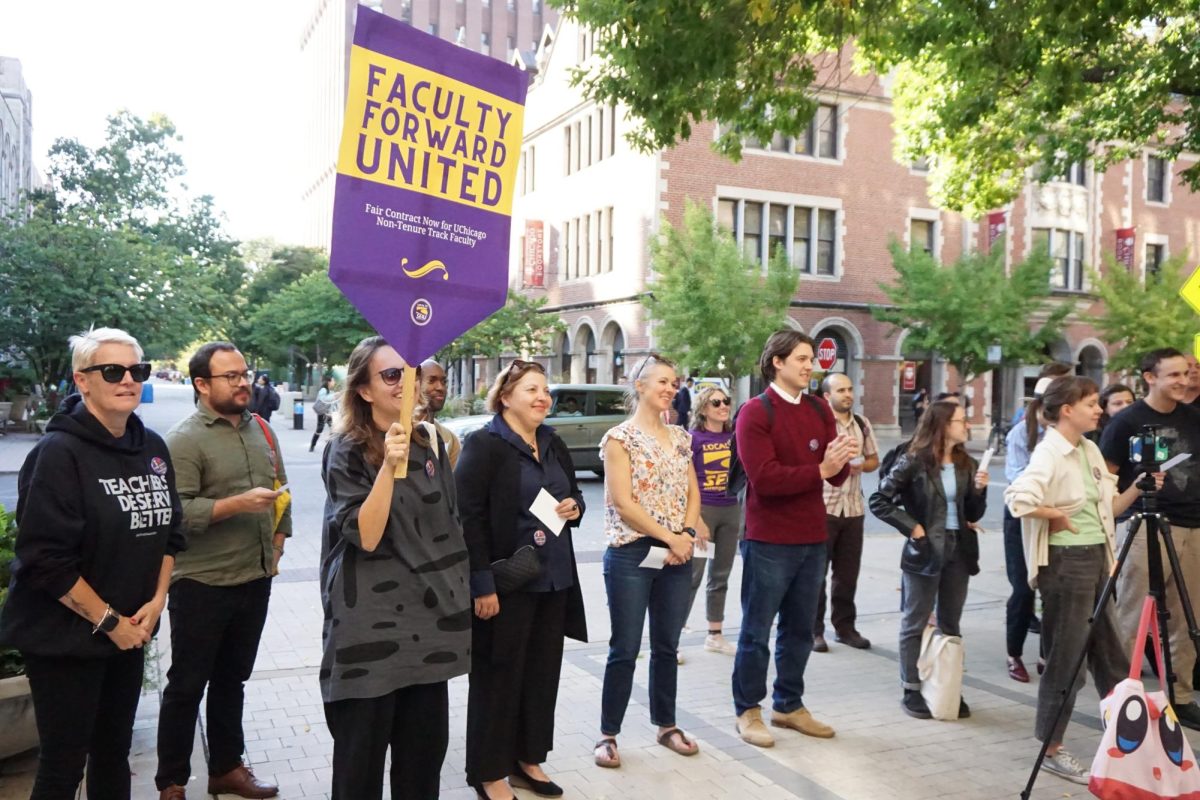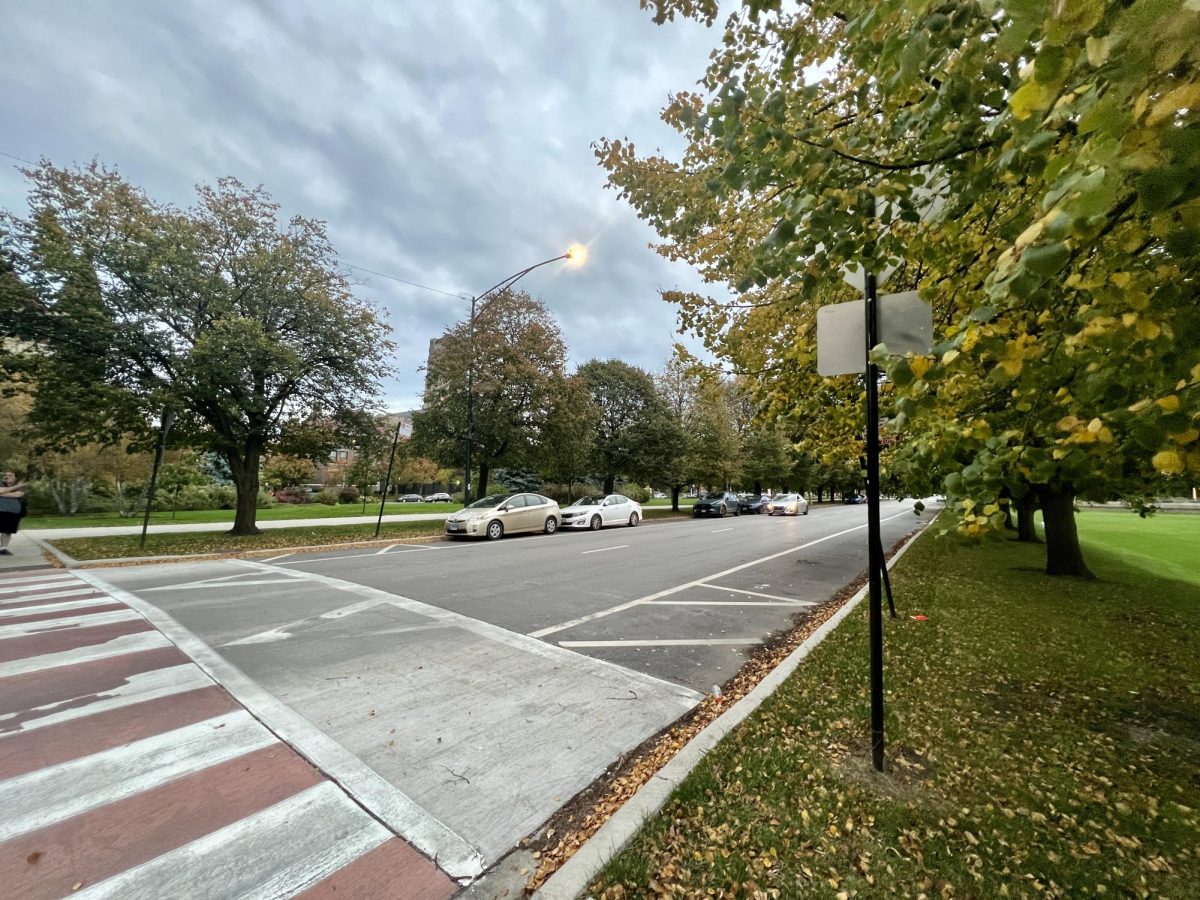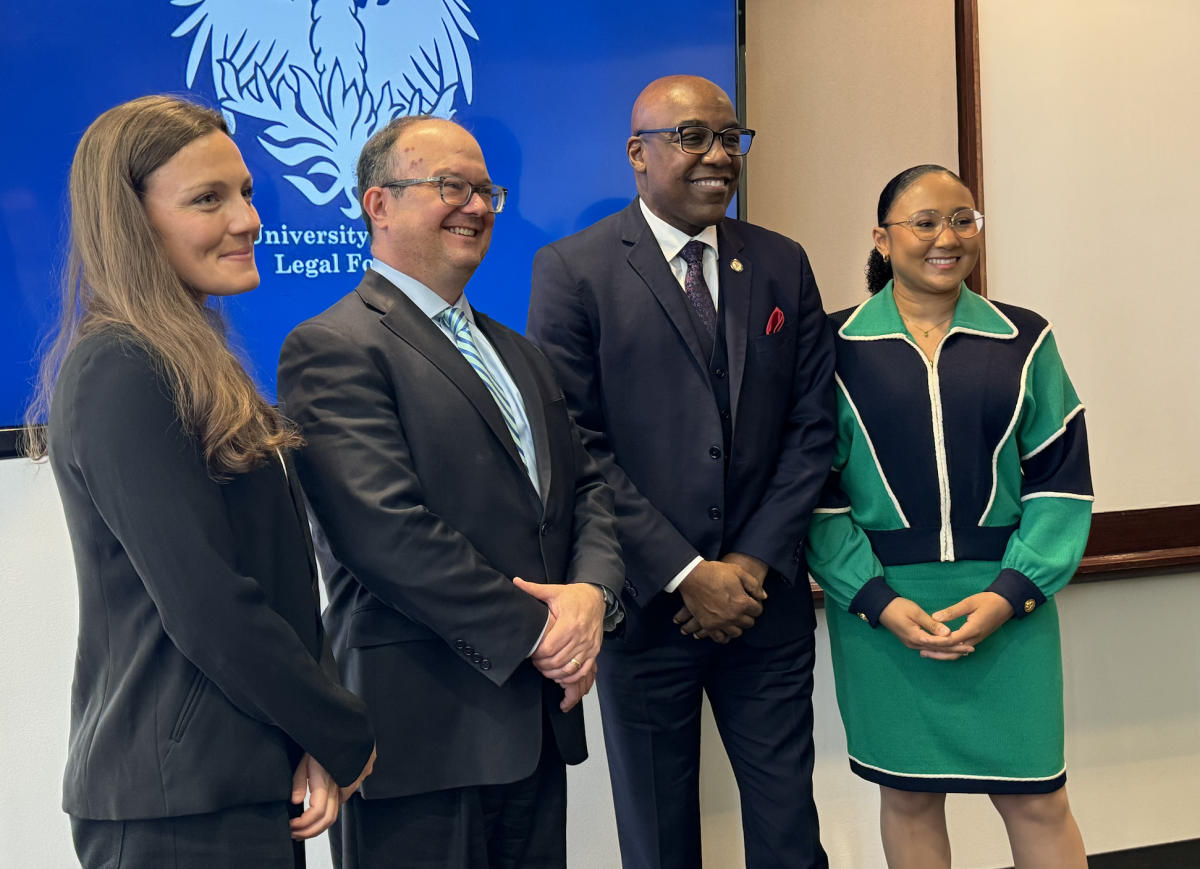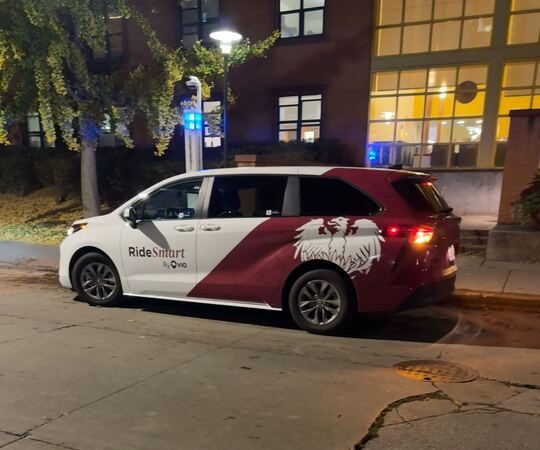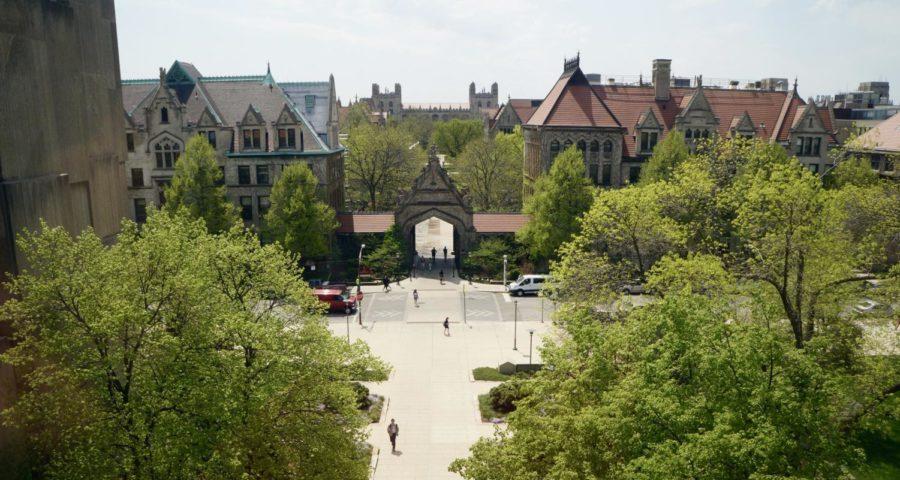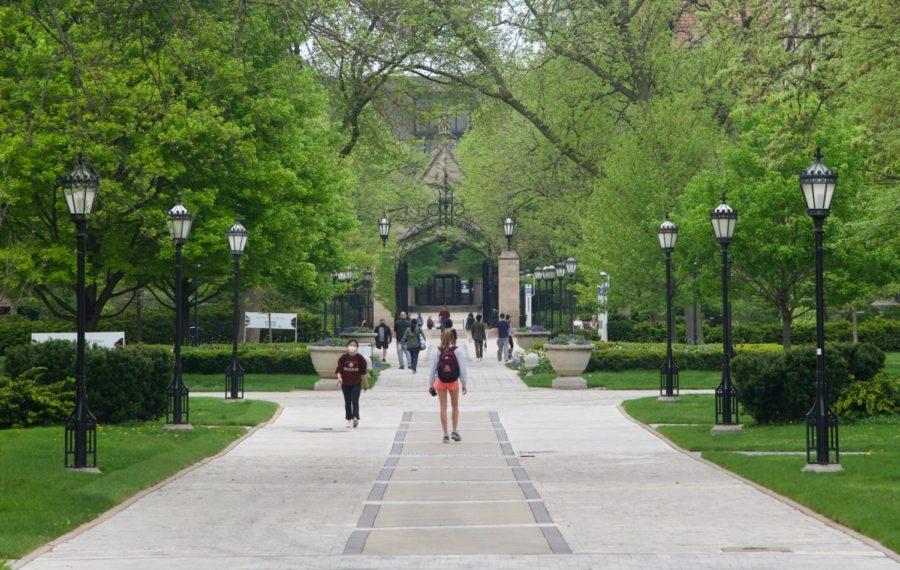Two days before the Iowa caucuses, first-year Emily Pelliccia and fourth-year Akash Mehta drove to Mechanicsville, a town with a population of just over 1,000, to try and get out the caucus for Bernie Sanders.
One of the main challenges of canvassing, according to Pelliccia, is figuring out how to do it efficiently. The Sanders campaign uses an app called MiniVAN to provide volunteers with a map of houses to canvass, which they can update in real time to show which houses they haven’t reached (Elizabeth Warren’s campaign uses the same program). At the start of the afternoon, Pelliccia and Mehta divided up the town, planning a route that would allow them to reach the most houses before night falls.
The list of houses from the campaign is supposed to contain households with a known connection to Sanders, such as people who donated to Sanders in 2016 or are registered Democrats; however, the information is occasionally wrong. Canvassers often encounter people who say that they plan to vote for another Democrat, for Donald Trump, or for no one at all.
When she encounters these people, Pelliccia often tries to bring them into the Sanders fold.
“There are Trump supporters who are Trump supporters because they’re anti-establishment and disillusioned with the political system, and those are people I find are most receptive to Bernie Sanders,” Pelliccia said.
Because of Iowa’s party registration system, residents can register for one party on the day of the caucus and go back to another party the next day. Pelliccia says she has spoken with Iowans who plan to do this.
“There are people who are not sold on Bernie but they like him best of any of the Democratic candidates…. I’ve actually gotten some Trump supporters who are like, ‘Okay, yeah, I’ll go caucus for Bernie,’ and then they might end up voting for Trump in the general, but they’re still helping us,” she said.
In Iowa, Medicare for All is a popular topic, as are Sanders’s plans for free public college and cancelling student debt. However, it’s more than Sanders’s policies that Pelliccia wants to pitch to potential caucus-goers.
“It’s about power and how we’re going to win back power for working people and marginalized people across the country, and I don’t think that’s going to be through more technocratic managerial governing,” Pelliccia said.
In Mechanicsville, one of the doors Mehta knocked on belonged to a local college student torn between Sanders and Pete Buttigieg, seeing the latter as a more realistic option. She also hadn’t originally planned to caucus because of her homework load.
“I let her know I have three midterms next week, and that 130 students from UChicago are out here knocking on doors because this is such an important moment,” Mehta said. “We agreed that this moment (every election this is said, but it’s so true), this election, is just not optional.”
Mehta eventually convinced her to caucus for Sanders, winning her over by telling her how tax increases for the wealthy would fund programs like student loan forgiveness.
Persuading people initially unenthused about caucusing to participate is a common experience for UChicago for Bernie canvassers. Fourth-year Katarina Keating canvassed a man who introduced himself as Tim, a Tom Steyer supporter who invited her and another canvasser into his self-described “man cave” to show her that he was watching Fox News. Tim expressed dislike for both Democrats and Republicans but was open to the possibility of caucusing for Sanders after Keating explained that he wouldn’t have to pay to caucus, and he remembered that a bar is located near his precinct.
Pelliccia said her best conversation of the day occurred in a gas station, where she spoke to a 34-year-old man who hadn’t had health insurance for the past 14 years and was interested to hear about Medicare for All.
“One thing that this experience has really proven to me is that the myth that thrives on the coasts and college campuses—that this fictional Midwestern voter who is always moderate [and] would never vote for a socialist—that just doesn’t exist,” Pelliccia said. “People aren’t thinking in those ideological terms. People are thinking, ‘I don’t have health care—what can politicians do for me about that?’”



